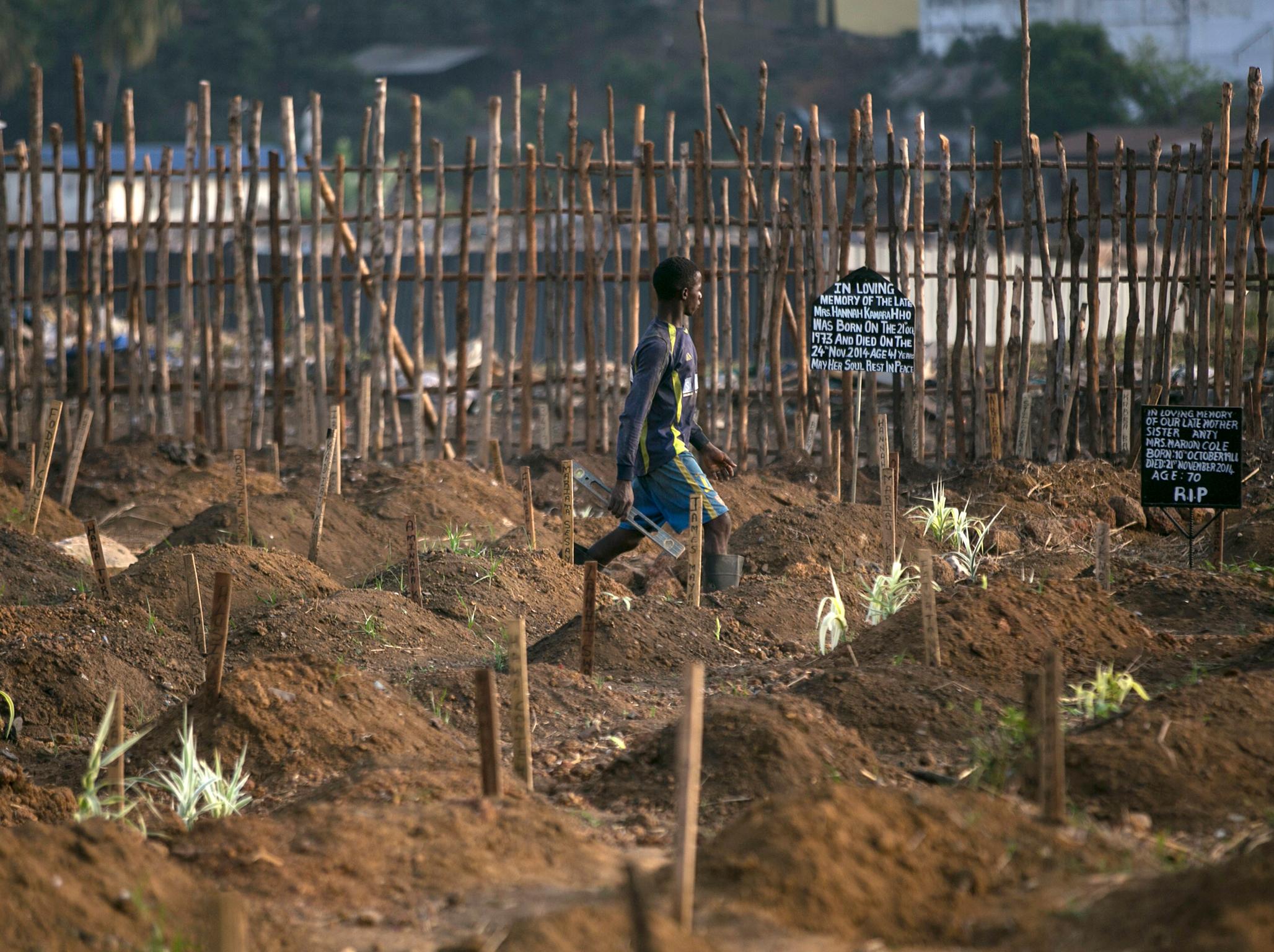Sierra Leone has recovered from Ebola – and is now facing a new crisis
In the distance the sound of three women wailing in pain at the loss of their child echoed around the walls of the hospital. It was a scene reminiscent of daily news coverage during Ebola. But this death was not caused by Ebola – it was from entirely preventable causes

Nearly 400 kilometres from Sierra Leone’s capital Freetown, lays the city of Kenema. Hundreds of miles from anywhere and surrounded by dense rainforest, it remained largely cut-off from the outside world during the deadly Ebola outbreak.
At the height of the epidemic, ambulances would tear through Kenema’s empty streets, taking the dead to the nearest out-of-town burial site. The city’s main hospital was overflowing with patients, ill-equipped to cope with the increasing rate of infections.
Two years on from Ebola being declared an epidemic by the World Health Organisation, life in Kenema has by and large returned to normal. The market is a hive of activity with women selling fruit and vegetables to willing buyers. Healthcare workers no longer have to wear the protective gear reminiscent of a disaster film, and children are back in school.
Yet the struggle the people of Sierra Leone and Liberia face is still very real, and another silent emergency still grips the hospitals.
When I visited Kenema government hospital in November, just a few days after Sierra Leone was declared Ebola-free, I found a hospital on its knees.
Already short-staffed prior to the crisis, this hospital lost 37 staff to Ebola. The doctors, nurses, midwives and hospital assistants are doing their utmost to provide the best possible care for their patients, but without running water, adequate sanitation and hygiene, they’re fighting a losing battle.
While I was there I witnessed several newborn babies die. Some lived for a few days, others for just a few minutes – but all of them died from entirely preventable causes including sepsis and pneumonia which could have been avoided if they’d been born in a clean, hygienic environment. This is a place where death among newborns is so prevalent that parents wait a week before naming their children.
Sadly this is not just a problem confined to the maternity and neonatal wards. As we travelled through the hospital we arrived at the mortuary and were greeted by Theresa who told us she was “a friend of the dead.” While we were there, another tiny corpse arrived, but with no space left the body had to be placed on the floor. The child would have been no older than five.
In the distance the sound of three women wailing in pain at the loss of their child echoed around the walls of the hospital. It was a scene reminiscent of what we saw almost daily on our TV screens during Ebola. But this death was not caused by Ebola. It was from entirely preventable causes.
In 2013 more than 4,500 children under five in Sierra Leone are estimated to have died from diarrhoeal illnesses. This figure is higher than the country’s 4,000 Ebola deaths.
If Ebola taught us anything, it’s that you cannot have infection prevention where you lack a reliable, clean water supply, functioning toilets and good hygiene. These are basic frontline defences in the battle against infection and disease. Yet the situation is still not improving.
A survey released by WHO in Sierra Leone this year found that in one district nearly three-quarters of all rural healthcare clinics do not have access to water at all, and even when they do, the water does not run 24/7. The situation is as bleak in Liberia where 95 per cent of healthcare facilities do not meet the national standards for the quantity of water required each day to keep a hospital running.
This is not just a situation waiting for an answer; this is an injustice waiting for action. If the country’s babies were born in hospitals where the midwives were able to properly wash their hands, where the beds they were giving birth on had been disinfected and the equipment they were using was properly sterilised, they may be alive today.
This is West Africa’s new silent emergency. If we don’t see action to improve water, sanitation and hygiene practices in healthcare facilities across Sierra Leone and Liberia, we’re at risk of repeating another epidemic like Ebola. Now both countries are starting to rebuild after Ebola, water and sanitation must be made a political priority. Funding must be provided for these basic building blocks of good health and development.
Then and only then will these nations be prepared if another epidemic hits.
Join our commenting forum
Join thought-provoking conversations, follow other Independent readers and see their replies
Comments
Bookmark popover
Removed from bookmarks